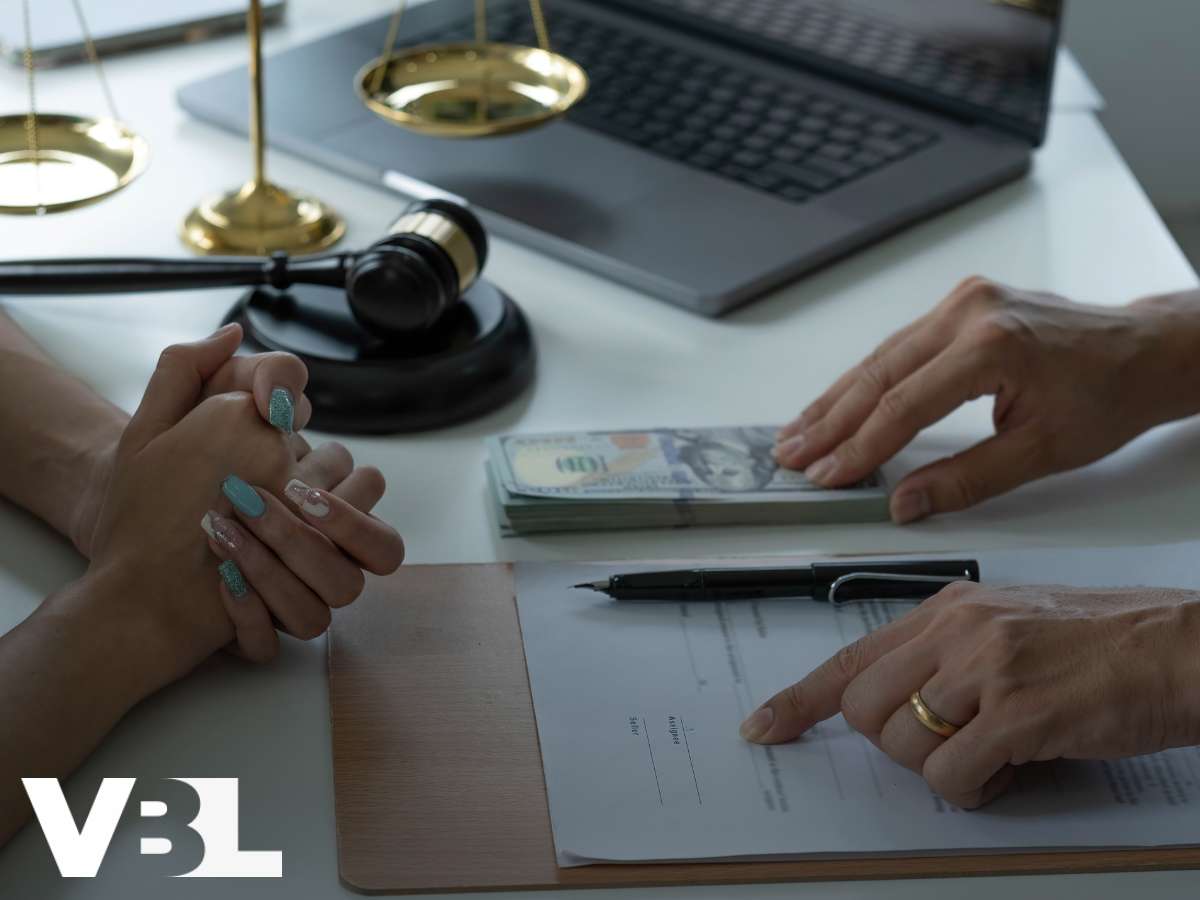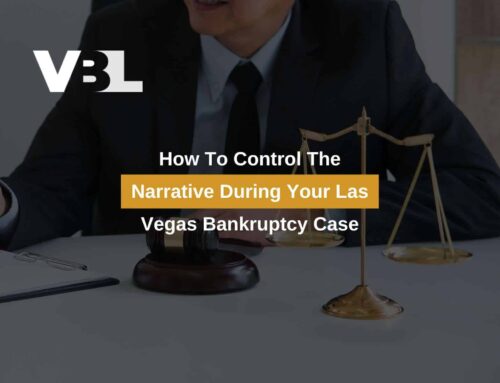Will My Creditors Be Notified If My Nevada Bankruptcy Is Dismissed?
Bankruptcy petitions are lengthy legal instruments that require supporting documents. One of the things a debtor must include with their bankruptcy petition is the creditor mailing matrix. This is a list of all the debtor’s creditors and their addresses so that the court can notify them of the bankruptcy filing. Ideally, a bankruptcy case will proceed until the debtor’s obligations are discharged. However, the court could find cause to dismiss a bankruptcy case for several reasons. So will creditors be notified of a case dismissal just like they are notified of a case filing? Read on to learn more about this topic, and if you have additional questions for our Las Vegas bankruptcy lawyers, call 702-370-0155.

Why Does It Matter If My Creditors Know About My Bankruptcy?
“Bankruptcy” is a term heard far more frequently than “offer in compromise.” An offer in compromise can be used specifically to address tax debts to the IRS. It is a settlement agreement with the IRS to pay a reduced sum to satisfy your back taxes.
Not everyone who files an offer in compromise will be approved by the IRS. There are certain factors the IRS will consider when determining whether or not to accept an offer in compromise. In fact, there are certain factors a debtor must meet just to apply to file an offer in compromise. The applicant must be able to prove that their income, expenses, assets, and equity make them unable to pay their tax debts. The applicant must have filed all of their taxes, and can’t be in an open bankruptcy when applying for an offer in compromise. However, it is acceptable for the filer to have filed an extension on their current tax year while in the application process.
To apply for an offer in compromise with the IRS, the debtor must fill out Form 656-B. Business owners applying for offers in compromise may have to fill out additional forms. Unless the debtor qualifies for a fee waiver, they will need to pay the filing fee of $205 at the time of filing the offer in compromise. This fee can be waived if the applicant meets certain financial requirements. The application will either be completed as a request to pay in a lump-sum payment or in periodic payments. If the applicant requests to pay by lump sum, they must also include 20% of the payment with their application. If the offer is accepted, the applicant will be notified and must pay the rest of the balance in 5 installments or fewer. Applicants wishing to pay off their balance with periodic payments must submit their first proposed payment with their application.
During the evaluation process, the IRS may suspend collection activities, such as wage garnishment. It may also serve the applicant with a Notice of a Federal Tax Lien. If the applicant has other agreements with the IRS, they can suspend payments on those plans and should pay per the terms of their proposed offer in compromise until the evaluation period is complete. You can find more information about making an offer in compromise to the IRS here.
What Is Bankruptcy?
Having news of your bankruptcy filing broadcast to several entities may not seem like a good thing at first, but it is actually one of the main benefits of declaring bankruptcy. Once a debtor files for bankruptcy, they are protected by the automatic stay as defined by 11 U.S.C. § 362. The automatic stay stops lawsuits, liens, and evictions before the writ of possession stage, utility shut-offs, wage garnishments, bank account levies, and more. If the creditor wants to proceed with their chosen method of collection, they will need to ask for special permission from the court through a motion for relief from the automatic stay. Otherwise, the creditor can’t take action until the case has been dismissed or discharged, assuming the underlying debt remains after discharge. However, if a debtor files bankruptcy multiple times in a 12-month period, the automatic stay could be reduced to 30 days or eliminated altogether. Another exception to the automatic stay is if the debtor’s wages are being garnished for back child support. Only a Chapter 13 bankruptcy that arranges for full repayment of child support arrearages can stop a child support wage garnishment.
Why Might A Bankruptcy Case Be Dismissed?
Chapter 7
- Debtor’s income exceeds state Chapter 7 income limits
- Failure to submit first or second credit counseling course completion certificate
- Bankruptcy fraud- hiding assets, lying on the petition, etc.
- Failure to pay filing fee or complete filing fee payment plan
- Incomplete bankruptcy petition
- Failure to attend 341 Meeting of Creditors
- Failure to comply with requests and orders made by the bankruptcy judge or trustee
Chapter 13
- Payment plan is infeasible (the debtor’s income is too low)
- Debtor fails to make payments as per plan
- Failure to submit first or second credit counseling course completion certificate
- Debtor’s liabilities exceed $2,750,000: maximum $465,275 secured debt and $1,395,875 unsecured debt
- Bankruptcy fraud- hiding assets, lying on the petition, etc.
- Failure to attend 341 Meeting of Creditors
- Incomplete bankruptcy petition
- Failure to pay the filing fee or complete the filing fee payment plan
- Failure to comply with requests and orders from the bankruptcy judge or trustee
Will My Creditors Be Notified?
Filing bankruptcy could have been crucial for you to stop a home foreclosure, vehicle repossession, wage garnishment, or other creditor collection method. If your bankruptcy is dismissed, you could be vulnerable to whatever action you were trying to avoid from your creditor again. Your creditor could very well be monitoring your bankruptcy case regardless of the court’s official notifications. If you want to know if the court will specifically notify your creditors of a bankruptcy dismissal, you can look to F.R.B.P. Rule 1017 for your answer. This rule states:
“The court may dismiss a voluntary chapter 7 or chapter 13 case . . . after a hearing on notice served by the United States trustee on the debtor, the trustee, and any other entities as the court directs.”
Therefore, a bankruptcy trustee can assume that if their case is dismissed, their creditors will know. This may not be a big deal to a creditor who has an old judgment that they’ve given up on seeking compensation for long ago.
What To Do After A Case Dismissal
Depending on your bankruptcy goals, you may need to work quickly after a case dismissal to regain bankruptcy protections from your creditors as soon as possible. In some situations, we have clients who wanted a case dismissed- after all, a Chapter 7 bankruptcy debtor can’t voluntarily dismiss their own case. Their needs may have changed since declaring bankruptcy to the point that refiling wouldn’t be worth the effort. But if the debtor wishes to refile, the steps they will take will depend on why their case was dismissed.
Oftentimes, bankruptcy cases are dismissed because chapter 7 debtors’ incomes are too high or chapter 13 debtors’ incomes are too low. When this happens, the debtor can usually refile their case under the correct chapter. Hopefully, everything in the bankruptcy petition was correct beside the chapter. Switching from Chapter 13 to Chapter 7, which can also be done without a dismissal through a conversion, is slightly simpler than the reverse because Chapter 13 requires more paperwork. A Chapter 7 debtor who needs to refile under Chapter 13 will need to draft their proposed payment plan and attend a plan confirmation hearing that wouldn’t be necessary in a Chapter 7 case.
Some case dismissals will come with a 180-day waiting period before the debtor will be allowed to file a bankruptcy petition once more. If the debtor hasn’t been barred from refiling, they won’t have to wait that long. However, refiling a bankruptcy case within 12 months of the dismissal will result in an automatic stay that only lasts 30 days. Chapter 7 bankruptcy typically lasts 3-6 months, and Chapter 13 bankruptcy lasts 3-5 years. It will be up to the debtor to decide if it is worth filing bankruptcy again knowing that several months of their case will go without protection from creditors.
A debtor who reinstates a dismissed bankruptcy can avoid the issues of the exploding automatic stay. A motion to reinstate a dismissed bankruptcy typically must be filed within a few weeks of dismissal, or the debtor will have to refile the case as an entirely new one.
High-Quality Las Vegas Bankruptcy Lawyers With Post-Filing Payment Plans
If you’re looking to file for bankruptcy in Las Vegas or the surrounding area, you should consider retaining legal representation to guide you throughout the matter. The best way to avoid dealing with a case dismissal is to make sure your case doesn’t get dismissed in the first place, and a bankruptcy lawyer can do just that. But the up-front costs of retaining skilled Las Vegas Bankruptcy Lawyers can make many potential bankruptcy debtors feel like it’s a cost they can’t afford. Some lawyers may even boast about payment plan options, only to reveal during the consultation that although their balance can be paid in installments, it must be paid in full before the petition can be filed. Our firm instead offers qualified clients the option to utilize our Zero Down bankruptcy payment plan. Pay for your bankruptcy in affordable installments after your petition has been filed- which may be much more affordable once you aren’t being charged late fees, interest, garnishments, etc. To learn more and see if you qualify, contact us through our online form or call to schedule your free consultation at 702-370-0155.

Las Vegas Bankruptcy Lawyers
LAS VEGAS
7251 W Lake Mead BLVD #300
Las Vegas, NV89128
Office: 702-879-2499
Email: [email protected]
HENDERSON
1489 W Warm Springs Rd. Ste 110
Henderson, NV 89014
Email: [email protected]
Additional Information at:
Phoenix Bankruptcy Lawyer
Phoenix DUI Lawyer
Chandler Bankruptcy Lawyer
Vegas Zero Down Bankruptcy Attorney
Gilbert Bankruptcy Lawyers
Arizona Zero Down DUI
AZ Bankruptcy Lawyer
















